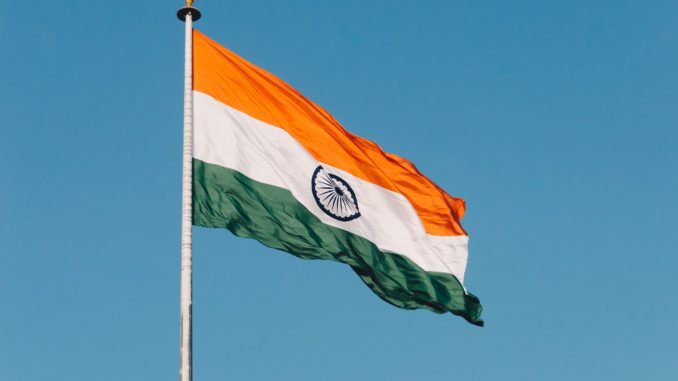
Ajit Doval, India’s national security adviser, stormed out of a virtual meeting of the Shanghai Cooperation Organisation this week after Pakistan violated the norms of the SCO charter by displaying a map showing Kashmir as part of its country.
Pakistan claimed Kashmir and some parts of the western Indian state of Gujarat as its territory in its projection of a new map released by Prime Minister Imran Khan’s government on Aug 4. The virtual meeting was held on Sept. 15.
India opposed it, while Russia, the chair and host of the SCO this year, tried to convince Pakistan not to use the controversial map. Pakistan was represented by Moeed W. Yusuf, special assistant to the prime minister on national security.
“Bizarrely, my Indian counterpart chose to walk out of Pakistan’s and Russia’s speech,” Yusuf tweeted. “Left a bad taste at a forum whose whole spirit is cooperation.”
India’s Ministry of External Affairs said the act was in “blatant disregard to the advisory of the host and a violation of the norms of the meeting.” Anurag Srivastava, a spokesperson for the ministry, said India had protested the display of Pakistan’s new map during a test call on Sep 12.
Nikolai Patrushev, secretary of the National Security Council of Russia, said his country “does not support” what Pakistan did — refusing to take down the map despite several pleas from the chair to do so.
Patrushev said he hoped the “provocative act will not affect India’s participation in the SCO” or cast any shadow on Patrushev’s warm personal relationship with the national security adviser.
Kashmir, a Himalayan region in the north of the Indian subcontinent, has been a disputed territory between India and Pakistan since the two countries’ independence from British rule in 1947. Both countries rule parts of Kashmir but claim sovereignty over the entire region.
India does not recognize any maps that demarcate the part of Kashmir ruled by Pakistan.
The region has been roiled by separatist movements since the early 1990s. India has been accused of repression and human rights violation in the region, including the disappearance of thousands of people suspected of being aligned with separatists.
“Impunity for human rights abuses is a long-standing problem in Jammu and Kashmir,” according to an Amnesty International report. “Abuses by security force personnel and armed groups, including unlawful killings, rape and disappearances, have often gone un-investigated and unpunished.”
On Aug. 5, 2019, India revoked Kashmir’s privileged status regarding internal administration. It also clamped down on telecommunication and internet services. Pakistan has opposed these moves.
Now, Pakistan’s act of displaying the new, false map is being criticized by political observers.
“At the meeting, it was done deliberately by Pakistan,” Syed Asad Abbas, an independent political analyst, told Zenger News.
“Yusuf’s deliberate projection of the claim despite objection from the chair shows how Pakistan treats not only its neighboring countries, but members of the SCO,” Tanwir Arshed, a political science teacher at the Presidency University in Kolkata told Zenger News.
“This is nothing new — even after 73 years of independence, Islamabad wants to settle its scores and maintain the status quo in the region by maligning India’s image,” he said. “At a time, when India is using a platform like SAARC to build confidence to overcome the pandemic, its neighbor is busy cooking up fake claims.”
SAARC, or the South Asian Association for Regional Cooperation, is an intergovernmental organization founded in 1985 and includes India and Pakistan as members. Its last summit, which was supposed to be held in Islamabad, was canceled in 2016 after India refused to participate following a terror attack in Uri, Kashmir.
India claimed that Pakistan-backed militants had attacked an Indian army base in the town, about 600 miles north of New Delhi, killing 23 Indian soldiers.
Regarding this week’s meeting, Debanjan Banerjee, a senior journalist, said Pakistan had violated decorum.
“Pakistan was exposed when they denied removing the map even after Russia opposed them,” he said.
“This also reminds me of (former Pakistan prime minister) Zulfikar Ali Bhutto tearing up white papers and walking out of the United Nations Security Council meeting,” said Arshed.
Arshed referred to the meeting in December 1971 when Bhutto stormed out after Pakistan’s defeat in a war with India during the freedom movement for Bangladesh.
India, Pakistan, China, Kazakhstan, Kyrgyzstan, Russia, Tajikistan and Uzbekistan are part of the SCO meetings. India and Pakistan became full-time members of the SCO in 2017.
Edited by Siddharthya Roy and Judy Isacoff.
The post Indian Security Adviser Walks Out of SCO Meeting over Map Row with Pakistan appeared first on Zenger News.
